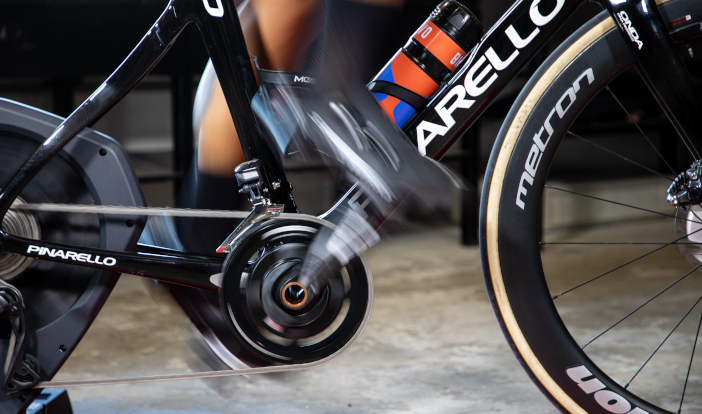What kind of person uses doping? It’s a weakness in somebody who looks for tricks and frills. A person who has so little regard for himself that he thinks he is incapable of reaching his objectives without the “help” of an outside doctor or technology. These are persons who should be helped and not just criticized (even if this comes naturally).
Dear friends,
Today I would like to discuss doping with technology (that is regrettably happening often now) with you. I admit that I am a fan of the e-bike. I think it’s the future for moving around the city (being green and clean) and for those people who, like me, work and have little time but don’t want to give up their Sunday sweat session and who want to compensate in some way for the missed training with some extra (electric) watt. Let it be clear that when speaking about competitions things are completely different. I, personally, don’t make much of a difference between “medical” doping and “technological” doping. The idea and the objective are the same.
What is the mental profile of an athlete who uses doping?
Before answering this question (obviously from my own point of view) I would like to broaden the panorama. I think that a person who uses doping is a person who tries to trick his way past his limits.
Some years ago, I wrote an article on an argument that I will take up here as well, especially because it’s still relevant. The desire to overcome our limits is part of us. It’s the “evolutionary tension” that Jovanotti spoke of, and is the energy and motivation (rendering man unique in the animal world) that’s transformed into action. It’s a disruptive force, a vital energy that has allowed man to become emancipated, to evolve. And thanks to this we’ve been able to leave the cave, unite in tribes, live near water, invent the wheel, create electricity, build houses, land on the moon, etc. etc. etc.
The great writers have always spoken about the acts of heroes and personalities that try to overcome their limits and reach omnipotence (become God). Adam and Eve in the garden of Eden who disobey God come to mind, or Icarus, who, flying with wings made of wax, falls disastrously to earth because he flew to close to the sun, or even Ulysses and his journeys.
Now, the point is not so much the desire to overcome your limits, the point is to recognize your limits and try to get past them with all the legal ways at your disposal and above all, once you have done everything that we can, to be able to accept them without looking for alternative routes.
Good, you’ll say, in theory we agree but when we find ourselves in front of disappointment and frustration because of a defeat it’s not so simple. Of course, I fully agree. It’s a difficult passage and often painful but it sets us free. And so, to get back to the first question… what kind of person uses doping?
It’s a weakness in somebody who looks for tricks and frills. A person who has low self- esteem and competence. Who has so little regard for himself that he thinks he is incapable of reaching his objectives without the “help” of an outside doctor or technology. These are persons who should be helped and not just criticized (even if this comes naturally). From this point of view, the argument of those enthusiastic about doping that research shows that doping doesn’t just exist in cycling but also in other sports, becomes empty. This is not really a surprise nor a consolation!
In my opinion, the only thing we can do and must do, is to promote a different culture. A culture that will be transmitted to the next generation so that they know the beauty of reaching an objective with their own strength, where consistency, effort and dedication are the fundamental values. Where fun comes before the result. Where youth teams have people who support kids in getting past the disappointment and frustration of losing and not doctors payed to avoid such feelings. Where performance is valued and not the result, where giving it your all is more valuable than a victory. And where defeat is not demonized and where not everybody has to be a champion.
The process of change will take very long and will require a collective effort. This, however, should not scare us. We should act as those who grow dates. Do you know the saying “who plants a date, will not eat dates”? The date tree takes a 100 year to produce its first fruits and will then produce fruit every year. But who planted the date tree will not eat its fruits.
We should behave as such, spread the seed so that the next generation can enjoy the dignity that this sport deserves. It won’t be easy, but, in my opinion, it’s the only way to save our beautiful sport!

Elisabetta Borgia
You might also be interested in

